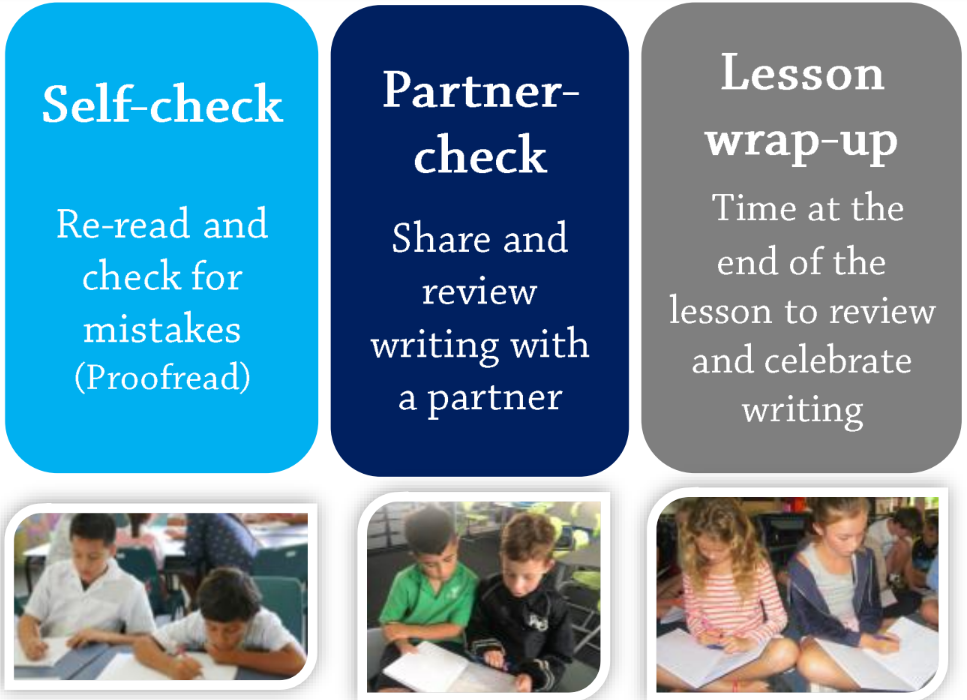Kohia Centre 5: Developing an Effective Writing Programme with Louise Dempsey
Content:
- review features of an effective writing programme
- unpack some skills writers need to develop
- review a balanced writing lesson
- share strategies for establishing editing skills and celebrating writing
Teaching approaches in a balanced writing programme

Teacher approaches - As seen above (summarised snippet of a writing programme)
Planning - Have an end goal for writing: What do I want children to do well. (I found this to be very helpful, because I realised, I was too hellbent on students learning structure and not having a specific goal for students to work towards.)
Engaging Students (Activities)
- Develop 'think, pair, share' culture
- Clapping phonemes (Sounds)
- Identify syllables (different symbols to phonemes)
- working on whiteboards
- Pointing to a letter/ wrods
- Making shapes of letters
- Drama - acting out ideas for writing, books, songs, poems
Suggested sequence for teaching writing
- Lesson introduction - 15 minutes
- Independent writing (guided) - 20 minutes
- Lesson wraps up - 10 minutes
Lesson Introduction - 15 minutes
- motivate the students for the writing lesson
- agree and unpack the criteria for the lesson
- Use modelled and shared writing to demonstrate the criteria
- Use 'think-pair-share' to check students understanding
Generating ideas for writing
Curriculum
- Topic/inquiry and other subjects
- Book from reading, Art activity, PE game, Music Activity
Activating memories/ experiences -
- A favourite place
- a special person
- favourite time of the day
- a time you were bored
- own topic
Shared Experiences
- image
- video
- book
- Drama
- Object
- Activity inside or outside the classroom
Create experiences for children
-Drama - sailing on a boat (pretend play)
-Listen to something: stories and poem (moment in time-setting description-character description-advice for a character-retell-innovation-introduction/ conclusion)
-Call a friend: oral language-activate a memory
-talking strips
Model/ Shared writing
- Move between modelled and shared
- Engage all students using 'think-pair-share'
- model how to use writers supports (alphabet cards, word lists, etc)
- Observe students during independent writing.
- what do they need you to model next?
- Keep it short and focused (don't try and do everything)
Independent Writing 20 minutes
After writing - Editing
*Have checklists glued in writing books, so it is available for them to self-check when writing is done.
*Wow words (highlight/ underline; upgrade - I can make that word better)
*Normalise sharing writing with someone
(Children progress quicker when they notice their own mistakes. Encourage children to edit their work)
Lesson wrap-up
*Children will write more if they know there's sharing time.
Model and teach the self-check (proofread)
OR
Model and teach the partner-check
OR
Review one criteria from the lesson
AND
Celebrate writing (super writer cape/ super writer wall display)
Suggested wrap-up sequence (encourage autonomy)
- Project a student's writing (exemplar)
- The students read their writing. Teacher/ students give feedback
- teacher chooses one thing from the checklist to review in the students writing (star and a wish)
- students review the same thing in their writing and make improvements (stars and a wish)



Comments
Post a Comment